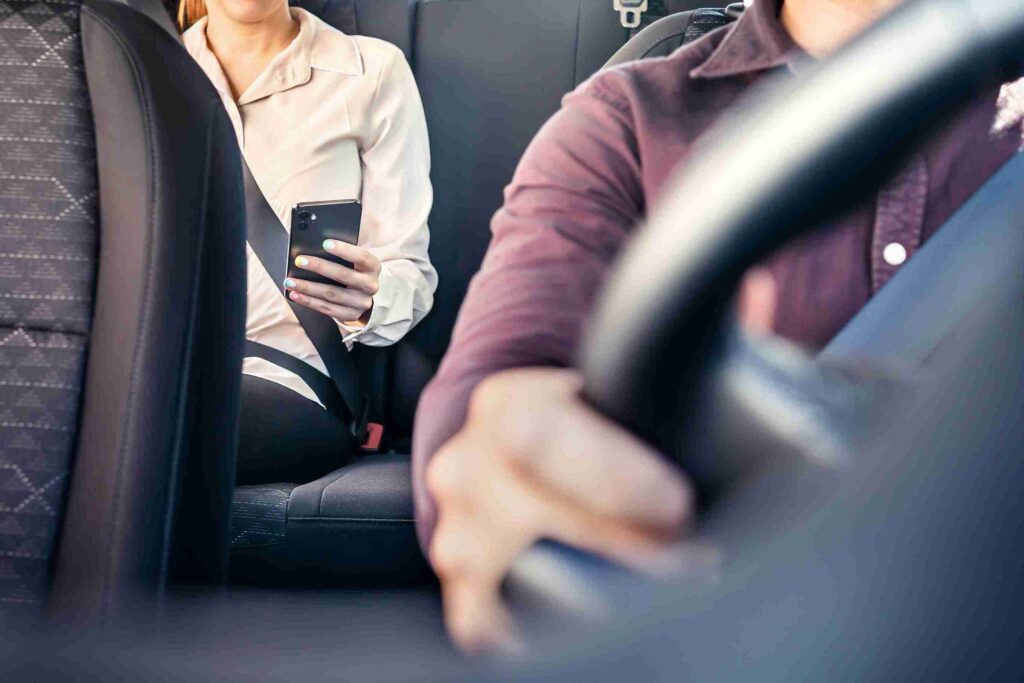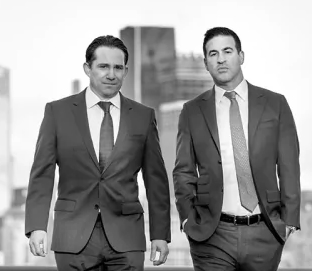Uber and Lyft have transformed the way people get around New Jersey. With a few taps, a ride is on the way, but what happens if that ride ends in a crash? Understanding rideshare accident laws in New Jersey is critical for protecting your rights if you’re injured.
Unlike traditional car accidents, rideshare collisions come with unique legal challenges. From driver classification to layered insurance policies, getting compensation isn’t always straightforward. Whether you were a passenger, another driver, or even a pedestrian, the path to justice often starts with clarity on the law.
At Glugeth & Pierguidi, P.C., we have over three decades of combined litigation experience and have achieved significant results for clients injured due to negligence. Founding attorneys Jared Glugeth and David Pierguidi personally handle every case. From our offices in New Jersey and New York, we fight for passengers, drivers, and pedestrians whose lives have been disrupted in rideshare accidents.
If you’ve been hurt in a rideshare accident, we’re here to help you navigate New Jersey Uber and Lyft accident laws and hold negligent parties responsible.

A specific set of insurance and liability laws, which differ from traditional car crash claims, govern rideshare accidents in New Jersey. Here’s a breakdown of the liability laws and how they work.
App Off
If the driver is not logged into the rideshare app, the accident is treated like any other motor vehicle collision. Only the driver’s personal auto insurance policy applies in this situation. Uber and Lyft do not provide any additional coverage.
Because rideshare companies do not assume responsibility when the app is inactive, this phase often leaves victims dealing with limited insurance coverage. Having an attorney review the driver’s personal policy limits is essential to ensure all possible sources of compensation are explored.
App On, Waiting for a Ride Request
When a rideshare driver is logged into the app but has not yet accepted a passenger, both Uber and Lyft must provide limited third-party liability coverage. The law mandates at least:
- $50,000 for bodily injury or death per person,
- $100,000 total for bodily injury or death per accident, and
- $25,000 for property damage.
If you’re injured in a crash with an Uber or Lyft driver who had the app on but hadn’t accepted a ride yet, things can get complicated. Determining which policy applies and whether the driver’s status qualifies for rideshare coverage can involve fine legal distinctions. A knowledgeable attorney can step in to clarify your rights and make sure insurance companies don’t try to avoid responsibility.
En Route to Pick Up or Transporting a Passenger
Once a driver accepts a trip request or is actively transporting a passenger, the highest level of insurance coverage takes effect. In this phase, Uber and Lyft must carry at least:
- $1.5 million in liability coverage for bodily injury, death, and property damage;
- $1.5 million in uninsured/underinsured motorist (UM/UIM) coverage; and
- $10,000 in medical payments per person per accident.
Under this stage, rideshare insurance offers the most protection, both to passengers inside the vehicle and to other drivers or pedestrians affected by the crash.
How Do New Jersey Lyft Accident Regulations Determine Fault?
Understanding how to determine fault after a rideshare accident in New Jersey is crucial to recovering compensation. Like other personal injury claims, rideshare accident cases rely on proving negligence, a legal concept that shows someone failed to act with reasonable care, resulting in harm to another person.
Negligence is established by demonstrating four key elements.
Duty of Care
All drivers in New Jersey, including rideshare drivers, owe a legal duty of care to others on the road. They are obligated to drive safely, follow traffic laws, and avoid behavior that could put others in danger.
Any deviation from these responsibilities can form the basis for liability.
Breach of Duty
A breach occurs when a driver fails to meet the expected standard of care. In other words, they did something a reasonably careful driver would not have done, or they failed to do something a reasonably careful driver would have done under the same circumstances.
Examples of a breach of duty in rideshare accidents include:
- Speeding or aggressive driving,
- Running red lights or stop signs,
- Driving under the influence of drugs or alcohol, and
- Using a phone or other distractions while driving.
Proving a breach is often the foundation of a strong personal injury claim. A skilled attorney can help collect evidence such as traffic camera footage, police reports, and cellphone records to demonstrate negligence.
Causation
Causation means showing that the breach of duty directly caused your injuries. It’s not enough to show the driver was careless. You must connect that carelessness to the harm you suffered.
Establishing causation often involves:
- Accident reconstruction by experts,
- Surveillance footage or dashcam video,
- Photographs of the scene and vehicle damage,
- Eyewitness testimony, and
- Medical records linking your injuries to the accident.
Insurance companies may argue that your injuries were pre-existing or caused by something else, so proving causation is critical to recovering full compensation.
Damages
Finally, to pursue a successful claim, you must show that the accident resulted in actual damages. Common damages include:
- Medical expenses,
- Lost income,
- Property damage,
- Pain and suffering, and
- Out-of-pocket costs.
Without documented damages, even a clear case of negligence may not result in compensation. That’s why it’s essential to seek medical care and legal counsel as soon as possible after a crash.
Under New Jersey law, the statute of limitations for personal injury claims, including those involving rideshare accidents, is two years from the date of the crash. If you miss this deadline, you may lose your right to recover compensation.
That’s why it’s critical to speak with a New Jersey Uber accident lawyer as soon as possible after the incident.
Whether you’re a passenger, a pedestrian, or another driver, a rideshare accident can leave you with serious injuries and big legal questions. Understanding rideshare accident laws in New Jersey, including driver status, layered insurance, and fault, is the first step toward protecting yourself.
At Glugeth & Pierguidi, P.C., we’ve helped injury victims across New Jersey hold rideshare drivers and companies accountable. We understand rideshare driver liability and New Jersey Lyft and Uber accident regulations and will help you navigate this complex system. We provide clear communication, responsive service, and the trial experience needed to stand up to major insurers.
Contact us today for a free consultation with an experienced New Jersey rideshare accident lawyer.


